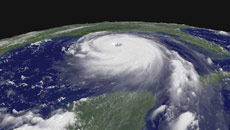If you are used to a sedentary lifestyle, this app can help you become a little active.
This smartphone-based app can produce short-term reductions in sedentary behaviour that may be effective in improving health.
More sedentary time, regardless of physical activity levels, is associated with greater risk of obesity, cardiovascular disease and mortality.
"Almost everyone knows that physical activity is important. But it's not widely recognised that someone who runs five miles in the evening but spends the rest of the day sitting at a desk can be putting their health at risk," said co-researcher Dale Bond from The Miriam Hospital, Rhode Island, in the US.
"That smartphone you use so often throughout the day could now actually help to improve your health," he added.
Bond and Graham Thomas from the same institute worked with their colleagues to develop a smartphone-based intervention to reduce the amount of time obese individuals sit or recline while awake.
The smartphone app, "B-Mobile," was tested in a study of primarily middle-aged women who were obese, although the intervention can be applied to those who are not obese.
The app automatically monitored the time participants spent being sedentary, and after an extended period with no activity, prompted participants via a tone paired with motivational messages to get up and walk around for a few minutes.
Participants received feedback providing encouragement for taking a break.
Researchers tested three different approaches to see which was best at reducing the total amount of sedentary time.
Even though all three were successful, researchers found it is better to take shorter breaks more often for better health.
"Prompting frequent, short activity breaks may be the most effective way to decrease excessive sedentary time and increase physical activity in individuals who are overweight or obese," Bond said.
The findings appeared in the journal PLOS ONE.





